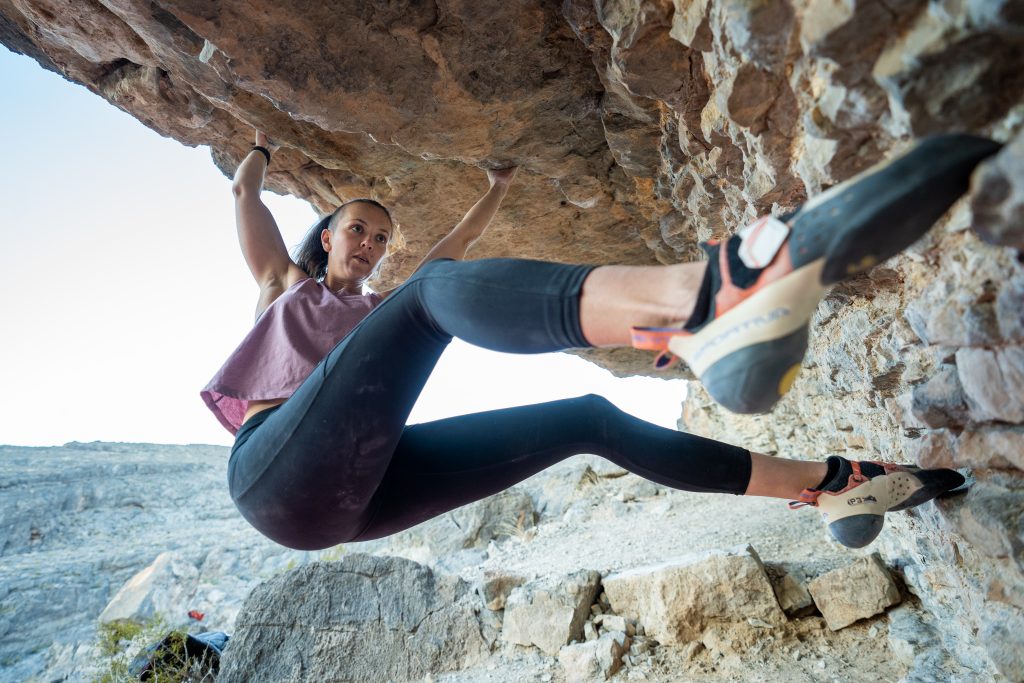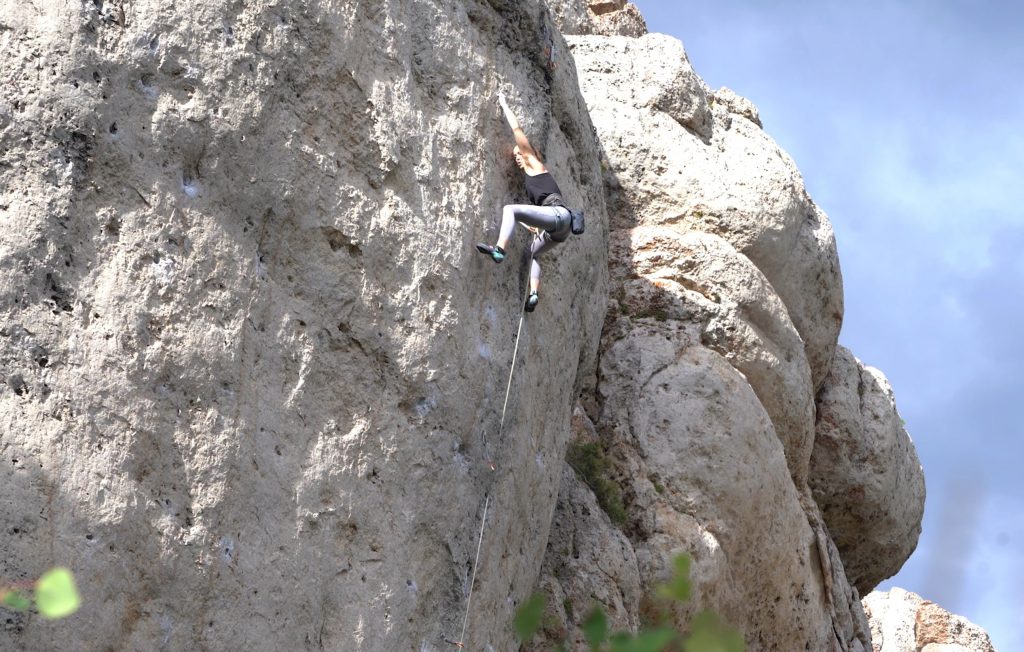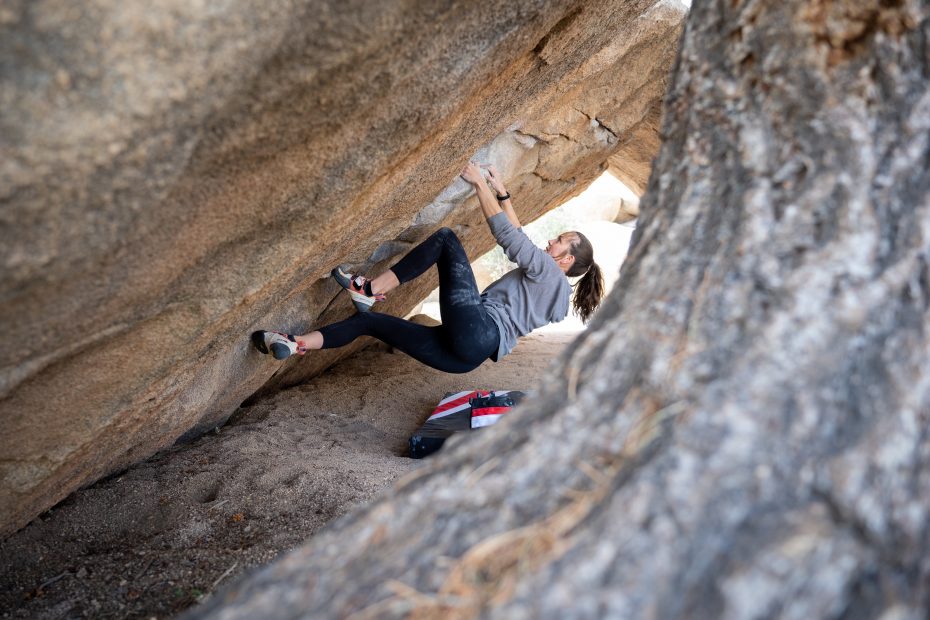I’m sure you’ve heard people say that grades don’t matter. Strong people, mostly. Sometimes, it feels just like rich people saying that money doesn’t make you happy. Like, okay… but I’m sure it would be nice.
It gets very confusing when you hear that grades don’t matter, but you constantly see grade-based headlines. “Adam Ondra Sends The Hardest Route In The World: Silence, 5.15d.” “Janja Garnbret Onsights Her Second 5.14b.” Etcetera.
I eventually figured out what people really mean when they say grades don’t matter: don’t let grades get in your way. Allow me to explain.
Grades can be useful
Like it or not, grades are quite an integral part of climbing. They help you decide what crag to go to, and what route or boulder to get on. They help you find people of a similar ability to go climbing with. They help you measure your own progress, and they help the sport progress forward.
There are certainly many positive things that come with having a grading system. Nobody’s saying that none of this matters. It’s just that grades have negative aspects too.
Here’s the bad part
I’m sure you’ve heard of “grade-chasing”, where a climber relentlessly pursues ticking a certain grade above all else. There’s certainly a time and place for grade-chasing, and sometimes it can be helpful – like, say, if you’ve only ever climbed 5.10 and you want to further yourself by breaking into 5.11. But there are many times when it has a negative effect.
If you want to climb the highest grade that you can, you’ll probably be looking for climbs that suit you. If you’re better at slabs than steeps, chances are you won’t be seeking out a steep project for your hardest send. You’ll be doing the opposite: looking for a hard slab that you can put down. But here’s the problem: you’re already good at slab. Getting even better at it by working on a hard slab project is not going to help you get better at steeps.

And depending on your goals, this could be totally fine. Maybe you’ve spent some time working on your weaknesses, and you want to focus on your strengths. Maybe you don’t care about being well-rounded, and you want to become the best slab climber of all time. Maybe you just want to have fun, and sending hard things is definitely fun.
But if your goal is to improve, climbing the hardest thing you can in a style that suits you probably isn’t going to help much.
Let me tell you about a time I failed
Last summer, in Wild Iris, I set myself a goal to send three 5.12s. (I had only ever sent one 5.12 at this point.) I knocked the first one – Butch Pocket and the Sundance Pump – down. Then, I sent its neighbor: Don’t Paint Your Wagon. These routes were slightly-more-than-vertical techy face climbing. This is something I am decently good at. After sending two 5.12s, I was torn. Should I pick another route that suits me and achieve my goal? Or should I broaden my horizons and work on something that’s harder for me – and more likely to make me a better climber overall?

I read the guidebook, visited different crags, and shopped around for this project. I tried a bunch of routes. I thought one of them was really cool – but it was hard. I didn’t know if I could send it before I left Wyoming. And somebody told me that there was a soft 12 one crag over that might be an easy send.
I chose the hard option: Wind and Rattlesnakes. It’s a bouldery 12a with no real rest between the first bolt and the 5th – kind of a power endurance route. And guess what: I didn’t send. But I learned SO MUCH. This is what people are talking about when they say grades don’t matter. They’re telling you not to let grades get in the way of your climbing or your progression as a climber.
When I look back, I’m proud of myself for choosing to work on being a better climber rather than getting another send. And while I may have failed to achieve my goal, it certainly didn’t feel like failure. Sending that soft 12, on the other hand, probably would have.
But wait, there’s more
The “grades don’t matter” people are also telling you to choose climbs that you’re psyched on – even if they’re a hard grade. You know when you go a crag and there’s a super epic-looking climb, but it’s harder than anything you’ve ever sent. Plus, there’s a [insert your grade] climb here, that looks much more doable… Don’t fall into that trap. Do things because you want to, not to tick a certain grade – unless that is what you really want, and you’re prepared to make the sacrifices that come with.
Fuck grades
In short, take the good parts of grades and use them to guide your climb selection and measure your progress – but don’t get too caught up in ticking routes or put off climbs with a hard-for-you grade. If you’re playing the long game, what looks like failure can actually be success – and climbing is one of the longest games of all.
Featured image credit: Ryman Wiemann
